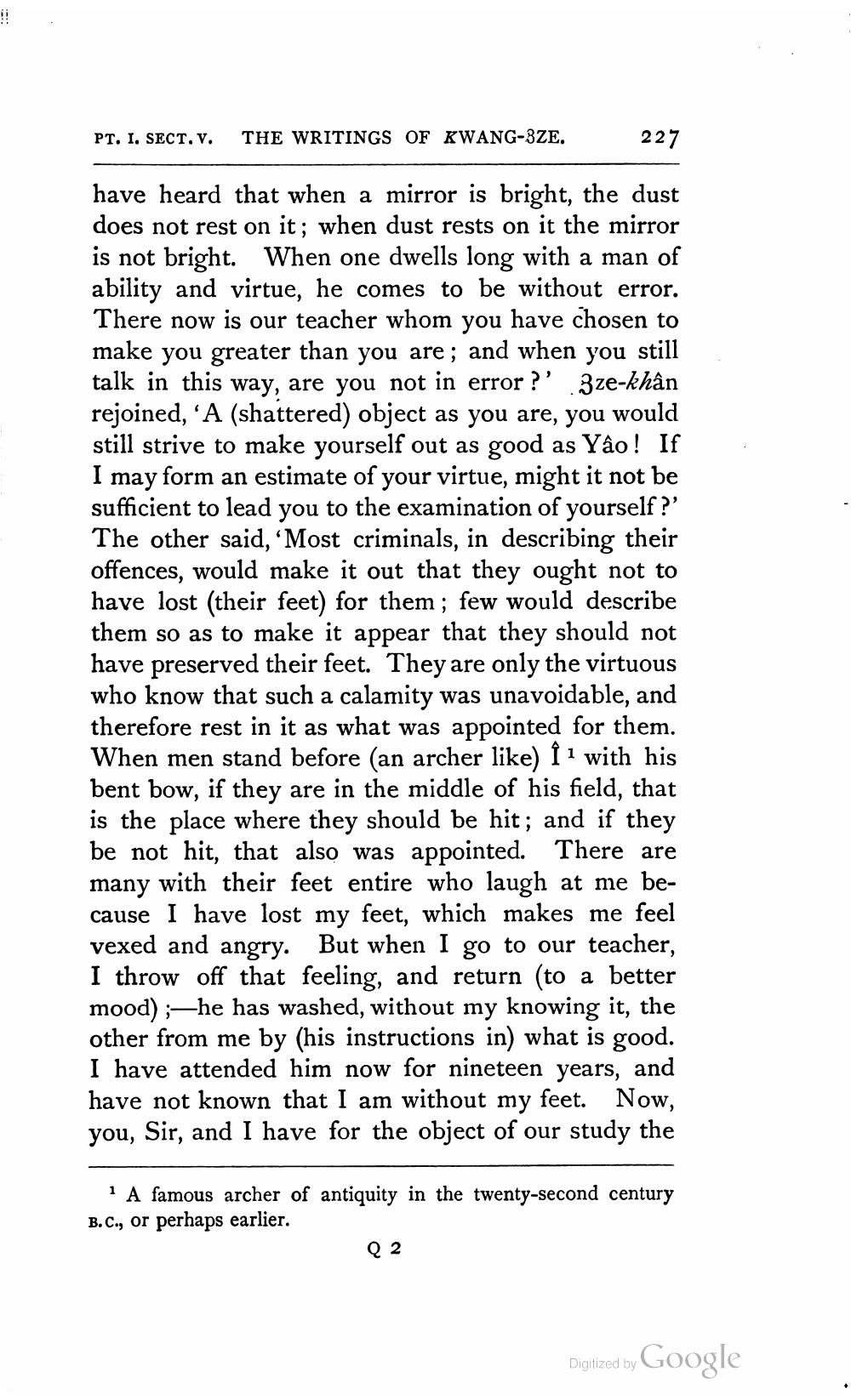________________
PT. I. SECT. v. THE WRITINGS OF KWANG-BZE.
227
have heard that when a mirror is bright, the dust does not rest on it; when dust rests on it the mirror is not bright. When one dwells long with a man of ability and virtue, he comes to be without error. There now is our teacher whom you have chosen to make you greater than you are; and when you still talk in this way, are you not in error ?' 3ze-khân rejoined, 'A (shattered) object as you are, you would still strive to make yourself out as good as Yao! If I may form an estimate of your virtue, might it not be sufficient to lead you to the examination of yourself?' The other said, 'Most criminals, in describing their offences, would make it out that they ought not to have lost (their feet) for them ; few would describe them so as to make it appear that they should not have preserved their feet. They are only the virtuous who know that such a calamity was unavoidable, and therefore rest in it as what was appointed for them. When men stand before (an archer like) i 1 with his bent bow, if they are in the middle of his field, that is the place where they should be hit; and if they be not hit, that also was appointed. There are many with their feet entire who laugh at me because I have lost my feet, which makes me feel vexed and angry. But when I go to our teacher, I throw off that feeling, and return (to a better mood) ;—he has washed, without my knowing it, the other from me by (his instructions in) what is good. I have attended him now for nineteen years, and have not known that I am without my feet. Now, you, Sir, and I have for the object of our study the
* A famous archer of antiquity in the twenty-second century B.C., or perhaps earlier.
Q2
Digitized by Google




